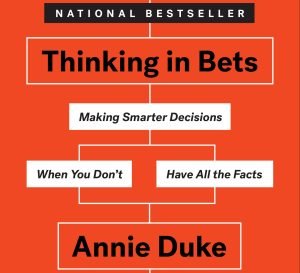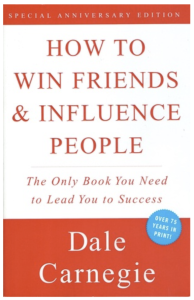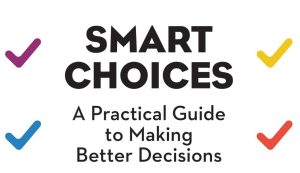- Mastering the Art of Decision-Making: A Deep Dive into Annie Duke’s ‘Thinking in Bets’Hello everyone! I recently had the pleasure of reading “Thinking in Bets” by Annie Duke, and I must say, it was quite an enlightening experience! The book delves deeply into the realm of decision-making, offering valuable advice on how to improve this essential skill. Drawing from her background as a professional poker player, Duke provides riveting insights that apply to everyday life. A particularly memorable concept from the book is the inherent uncertainty accompanying decision-making. Duke emphasizes the importance of embracing this uncertainty to make better decisions. She expertly guides readers on how to approach situations probabilistically, revise our beliefs… Read more: Mastering the Art of Decision-Making: A Deep Dive into Annie Duke’s ‘Thinking in Bets’
- How to Win Friends and Influence People“How to Win Friends and Influence People” is a self-help book written by Dale Carnegie and first published in 1936. The book provides practical advice and techniques for building and maintaining relationships with others, improving communication skills, and gaining people’s trust and respect. The main idea behind the book is that success in life, both personal and professional, is largely dependent on one’s ability to effectively communicate and build strong relationships with others. Some of the key concepts covered in the book include: Overall, “How to Win Friends and Influence People” provides a comprehensive guide to building and maintaining positive… Read more: How to Win Friends and Influence People
- Smart Choice“Smart Choices: A Practical Guide to Making Better Decisions” is a book by John S. Hammond, Ralph L. Keeney, and Howard Raiffa. The book provides a framework for making better decisions by combining decision analysis with a structured approach to problem solving. The authors introduce the concept of “decision quality,” which they define as the degree to which a decision meets the following criteria: it is based on a comprehensive analysis of the problem, it identifies the most important decision criteria, it uses a systematic process to evaluate options, it leads to an actionable recommendation, and it takes into account… Read more: Smart Choice


